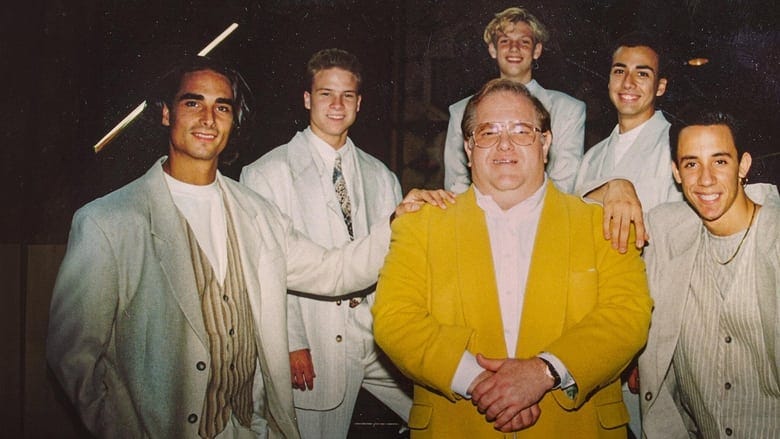I’ll be honest, I was never a huge boy band fan. At all. They always seemed cookie-cutter to me. Four or five guys doing perfectly timed dance steps, looking mildly tough but still very clean, music as light as a feather despite the vaguely hip-hop-sounding drum programs. Sure, these guys could sing like nobody’s business and it was all very romantic, but I never heard the New Kids, Backstreet Boys, NSYNC or any other boy band without longing for U2, Harry Connick, Jr., or Bryan Duncan. Give me alternative and jazzy stuff every time.
So how is it that I got sucked into watching Dirty Pop: The Boy Band Scam on Netflix? The siren call of Trends, of course. The series was ranked Number One TV Series at the time of this writing, so yeah, here we are. Groan. Flinch. Grimace.
Speaking of groaning, flinching and grimacing, the series doesn’t make a very good first impression. Even though its main subject, Lou Pearlman, the mastermind behind a lot of young talent in the nineties and early oughts, died in 2016, we still get to see and hear him speaking for himself.
How does the show do that, praytell? By taking existing footage of Pearlman sitting behind his desk and manipulating his lips to kinda-sorta match an AI version of his voice reading from his 2002 self-help book, Bands, Brands and Billions: My Top 10 Rules For Making Any Business Go Platinum. It’s creepy as all get-out and the book reads like a tabloid.
Fortunately, Dirty Pop keeps this fakery mostly to a minimum. While two members apiece from NSYNC and the Backstreet Boys carry the lion’s share of the interviews, there are appearances by members of O-Town and Natural, as well as a very quick montage of the other pop groups Pearlman helped develop, such as LFO and Take 5.
Backstreet Boys and NSYNC were the big dogs of the Pearlman management empire, though, but it didn’t take them long to realize something was rotten in Denmark, or more precisely, Germany. Not only did Pearlman also manage a blimp company with a German who used to fly for the Luftwaffe during World War Two, but the Backstreet Boys started noticing they were making peanuts while Pearlman was pulling in the big bucks. NSYNC noticed this as well, and both groups got themselves new management.
The series zooms pretty quickly through Pearlman’s various eccentricities, but it makes no bones about his indiscretions catching up with him, which just happened to coincide with the boy band subgenre going the way of disco.
One of the things that’s immediately apparent about the series is how complicated the relationship is, even to this day, between Pearlman and all the stars he helped promote. On one hand, they’re grateful to Pearlman for getting them started, but on the other hand, they’re disgusted that Pearlman was financing their success by siphoning investment money away from clients who bought into his moneymaking schemes. Scars still linger from that time, which might be why more former band members didn’t participate.
Pearlman might have been creepy and a little eccentric, but he did have an eye for talent, and most of his protoges have done very well for themselves even once they distanced themselves from Pearlman.
In that sense, the series has irony a-plenty. The second time we see Justin Timberlake (the first is a blip from the “It’s Gonna Be Me” video), his fourteen-year old self points out the Janet Jackson poster on his bedroom wall. “I love that woman,” he says.
Oh young Justin, if you only knew at the time where your life was going to take you.
While I’m still not a fan of boy bands, it’s hard not to feel sympathetic for the people who were given the short shift by Pearlman, especially seeing as he spent years hiding from the law and only a small chunk of the money he stole has been recovered. In the end, Pearlman was nothing but a blithering coward.
Dirty Pop: The Boy Band Scam is currently streaming on Netflix. Not rated.
My grade: B-
Principal Cast: Chris Kirkpatrick, Howie Dorough, A.J. McLean, Erik-Michael Estrada, Patrick King, Jr., Michael Johnson.
Directed by David Terry Fine.




